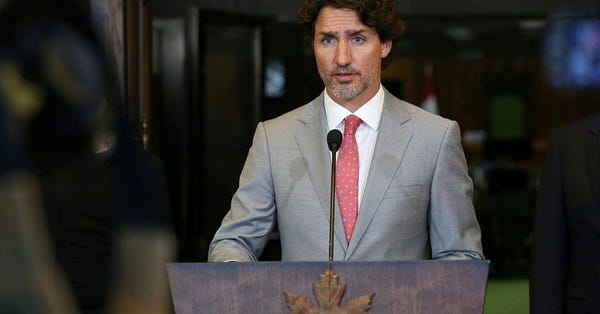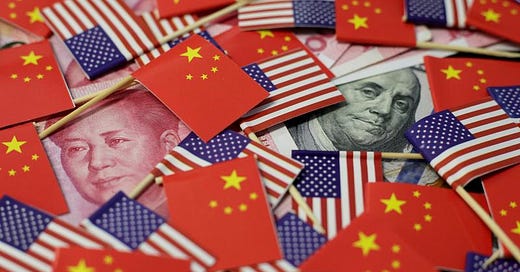The China Letter is in the middle of a subscriber drive. Be sure to share this email with your friends who enjoy thoughtful content. And if you’re that friend, we’re happy to invite you to subscribe!
The money is now talking
Tough sanctions could be coming for the international financial institutions doing business with individuals responsible for China’s crackdown in Hong Kong, based on a U.S. State Department report that named names including chief executive Carrie Lam. It’s the latest in a series of efforts to strike back at effects of the national security law.
The 50-year itch is here


Canada marked a half-century of diplomatic ties with China with a critical speech by Justin Trudeau that led Beijing to lodge solemn representations, saying that the comments reflected hypocrisy and weakness. It came after the first words that two Canadians detained in China for nearly two years spoke with their ambassador:


Virtual access was also provided with Robert Schellenberg, a Canadian facing a death sentence—much like the arrests of Michael Spavor and Michael Kovrig, it was perceived as retaliation for the detention of Huawei executive Meng Wanzhou. China had been using COVID-19 as the explanation for not allowing these visits—including virtual ones.


Will you share this newsletter for us with people that would appreciate it? It helps the newsletter grow!
Xi’s rhetoric is unmasked


A visit to a People’s Liberation Army marine corps base in Chaozho gave Xi Jinping the stage to remind troops to safeguard China’s interests by focusing their minds and energies on potential combat. This was followed by Xi visiting Shenzhen to mark its 40 years as the country’s first economic zone by hailing it as a future technology hub.


Xi also used his speech to promote the Chinese integration of Hong Kong, and encouraged its younger residents to move to the mainland and boost their “sense of belonging.” The president was also seen coughing away and drinking water at the Shenzhen ceremony, while Carrie Lam kept her distance due to coronavirus concerns.
Jumping through hoops


American professional basketball returned to Chinese TV with the state-run network praising the NBA for helping to fight COVID-19. The broadcasts vanished for a year after Houston Rockets general manager Daryl Morey tweeted his support for Hong Kong protesters. The league estimated this led to at least $200 million in lost revenue.
The last words, for now
Korean boy band BTS have been topping global pop charts, but they aren’t immune from the politics of China. RM, the group’s leader, mentioned South Korea’s “history of pain” with the U.S. regarding their role in the Korean War, some 70 years ago. But since Beijing backed the North back then, the Chinese backlash seemed certain to follow:


The China Letter will return next week. If you’re not subscribed yet, do it here:





